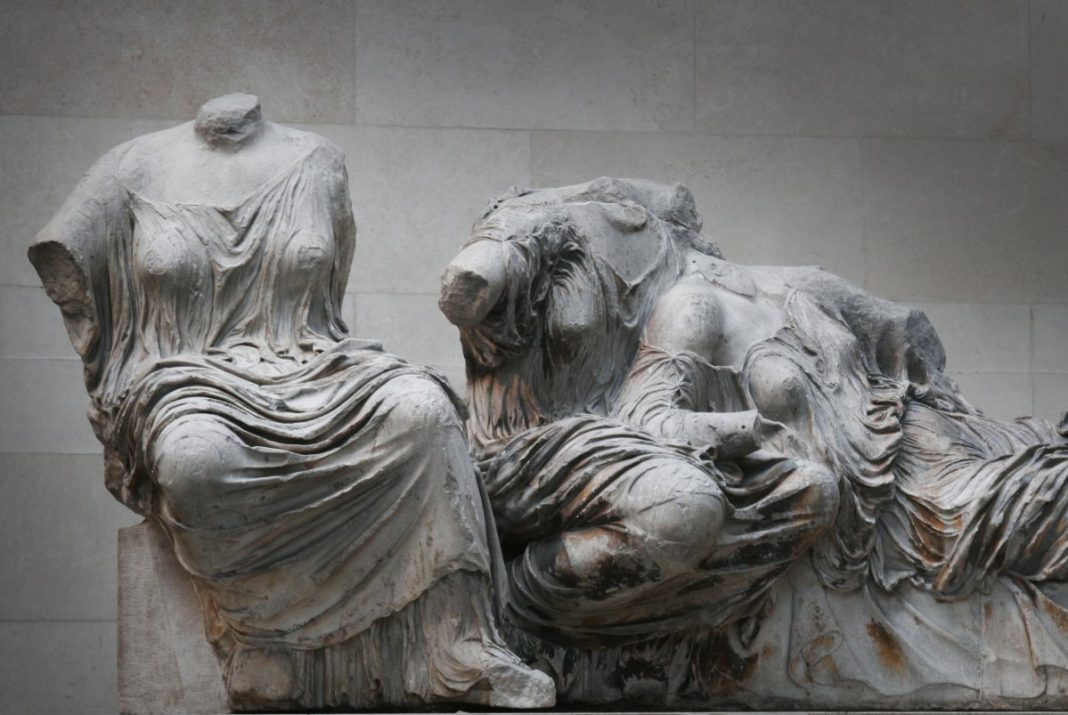
Dec. 5 (UPI) — The British Museum is reportedly in the advanced stages of talks to return the contested Parthenon marbles in its collection to Greece, which would end a decades-long dispute between the two nations.
The 2,500-year-old sculptures, also known as the Elgin Marbles, have been in the museum’s collection for more than 200 years after they were taken from the Parthenon by Thomas Bruce — Britain’s ambassador to the Ottoman Empire — in the early 1800s.
Bruce, the Earl of Elgin, took the marbles with him to Britain with the permission of the Ottoman Empire, which controlled Greece at the time but was partitioned after its defeat in World War I.
The marbles include free-standing sculptures, as well as a frieze that shows the procession of Panathenaic festival and a series of metopes — or sculpted relief panels — depicting a battle between the mythological centaurs and Lapiths at the marriage-feast of Peiorithoos.
Greece and its advocates in the art world have formally sought the return of the marbles as far back as 1983, according to the British Museum.
The museum has long claimed it had the proper authority to keep the relics which it has said were saved from destruction by the Earl of Elgin while Greek officials have said that the permission granted by the Ottoman Empire was not valid because the decision was made without the approval of the Greek.
The British Museum’s website reads that Elgin’s actions “were thoroughly investigated by a Parliamentary Select Committee in 1816 and found to be entirely legal, prior to the sculptures entering the collection of the British Museum by Act of Parliament.”
The news that the talks between the two nations have now reached advanced stages was first reported by the Athens newspaper Ta Nea — and was confirmed by The Art Newspaper and The Guardian.
Greece’s Prime Minister Kyriakos Mitsotakis is reported to have met last week with George Osborne, the chairman of the British Museum, in London to discuss the fate of the sculptures.
Mitsotakis and Osborne together appeared for an address at the London School of Economics after the talks during which the Greek official said that the permanent return of the marbles was “possible,” according to The Art Newspaper.
“A win-win solution can be found that will result in the reunification of the Parthenon sculptures in Greece, while at the same time taking into account concerns that the British Museum may have,” Mitsotakis said during the address.
Art experts who spoke with The Guardian heralded the news as “not only credible but very exciting” though the British Museum’s website still notes that “there are no current discussions with the Greek government on this issue.”
The return of the marbles to Greece would mark a pivotal moment in contemporary art history as nations seek restitution for looted art and artifacts.
Poland’s Ministry of Culture and Natural Heritage said last week it will take legal action and seek restitution after a Wassily Kandinsky painting believed to be stolen from the National Museum in Warsaw was sold at a German auction.
The painting was acquired by Warsaw’s National Museum from a private collection in 1982 but was stolen from the museum in June 1984. It was sold by Grisebach at an auction on Thursday for $408,328.
The news came after nearly two dozen looted objects that were seized by the office of Manhattan District Attorney Alvin Bragg in recent months were revealed to have been recovered from the home of a trustee of the Metropolitan Museum of Art in New York City.
Warrants showed that 23 of the antiquities were seized by authorities from the home of Shelby White during a lengthy investigation into the provenance of the art and historical objects.
Some of those pieces have already been repatriated to Turkey and Italy, including a third-century statue worth $15 million.
Last month, France’s Culture Ministry issued a new report recommending that museums tighten their policies after questions were raised about acquisitions by the Louvre Abu Dhabi and a crackdown on art racketeering.
The report comes after Jean-Luc Martinez, the former director of the Louvre, and curator Francois Charnier were indicted and charged with “complicity of gang fraud and laundering” after acquiring suspected looted antiques from Egypt, which were purchased for $50 million.
Also last month, a highly anticipated database of the Benin Bronzes, a massive trove of art and cultural artifacts looted from the Kingdom of Benin by the British empire in 1897, was launched.
The project, Digital Benin, began in 2020 and has culminated with a catalog of 5,246 historic Benin objects currently held in 131 institutions across 20 countries.
The Benin Bronzes were largely looted by the British colonial military forces during a punitive campaign against Benin City in 1897, led by British Navy forces and members of the Niger Coast Protectorate.
Britain’s Foreign Office acquired hundreds of the works after the raid and gave them to the British Museum, which now has more than 900 of them alone.
The Kingdom of Benin, which has no connection to the modern country of Benin, is now the Edo state in Nigeria and the database could pave a path for the restitution of such objects to the African nation.
